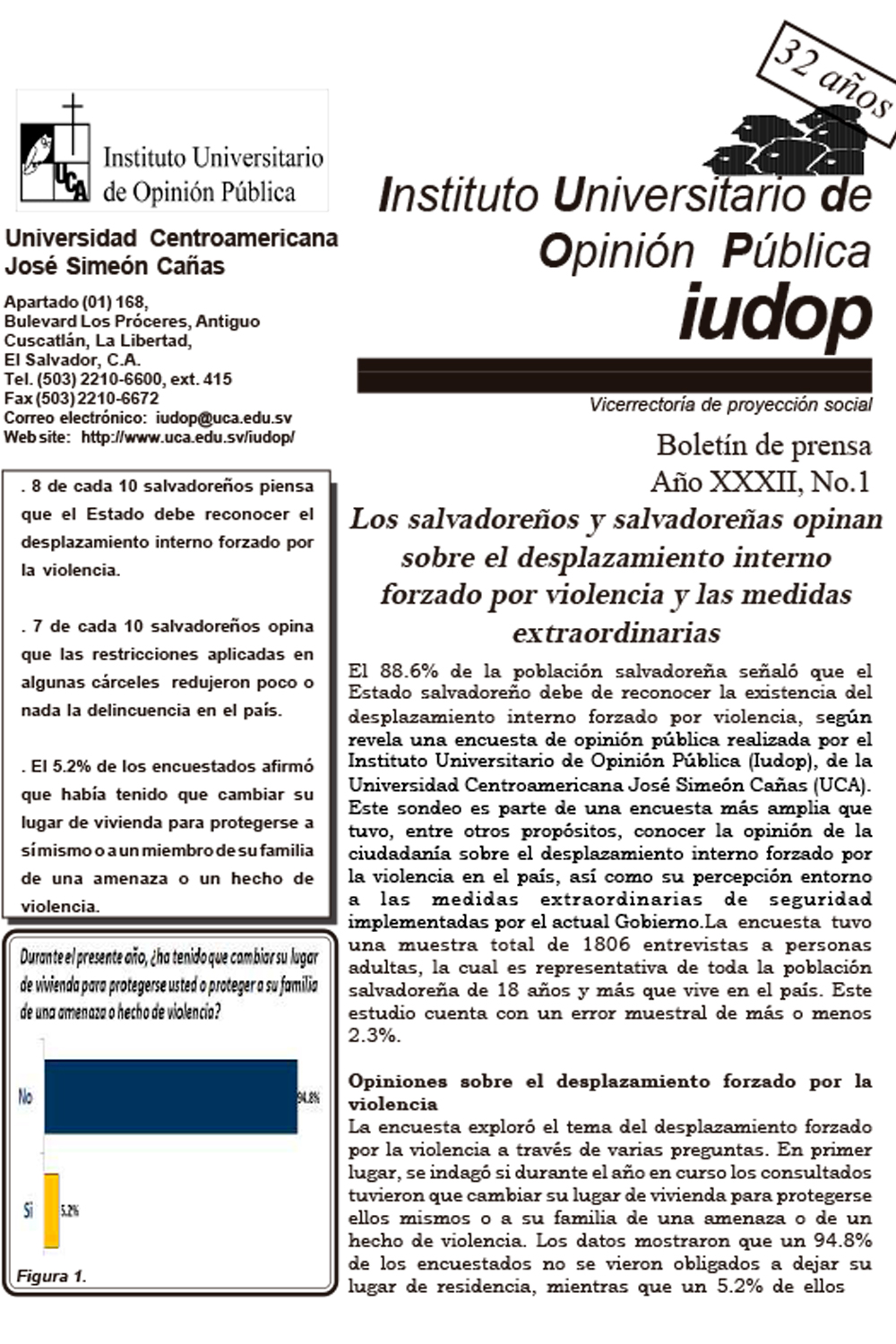
Newsletter: Salvadorans give their opinion on forced displacement


88.6% of the Salvadoran population indicated that the Salvadoran State must recognize the existence of forced internal displacement due to violence, according to a public opinion survey carried out by the University Institute of Public Opinion (IUDOP), of the José Simeón Cañas Central American University (UCA). This survey is part of a broader survey that intended to, among other purposes, find out the opinion of the public about forced internal displacement due to violence in the country, as well as their perception of the extraordinary security measures implemented by the current Government. The survey had a total sample of 1,806 adult interviewees, which is representative of the entire Salvadoran population of 18 years and older living in the country. This study has a sampling error of plus or minus 2.3%.
Opinions on forced displacement due to violence
The survey explored the issue of forced displacement due to violence through various questions. Firstly, it investigated whether during the current year those consulted had to change their place of residence to protect themselves or their family from a threat or an act of violence. The data showed that 94.8% of those surveyed were not forced to leave their place of residence, while 5.2% of them (94 people) did report having had to change their place of residence to protect themselves from threats or acts of violence.
SURVEY ON FORCED INTERNAL DISPLACEMENT
The University Institute of Public Opinion (IUDOP) of the Central American University José Simeón Cañas (UCA) carried out between November 16 and December 2, 2018, a broad study that included a section dedicated to knowing the opinion of the Salvadoran population on forced internal displacement due to violence and the extraordinary security measures implemented by the Government.
The instrument of this survey was organized into four sections. The first of them collected general data of the people surveyed, such as sex, age, political party of preference, educational level, religion, and employment status.



Portal de monitoreo a vulneraciones de derechos humanos
El equipo de investigación de Cristosal brinda monitoreo constante a las violaciones en materia de derechos humanos, para brindar información oportuna y certera sobre las causas y efectos de estas sobre las poblaciones vulneradas. Alimentado por datos provenientes de instituciones Estatales, de sociedad civil y de cooperación internacional, sus publicaciones fortalecen la labor de defensa y promoción de los derechos humanos en el Norte de Centroamérica.